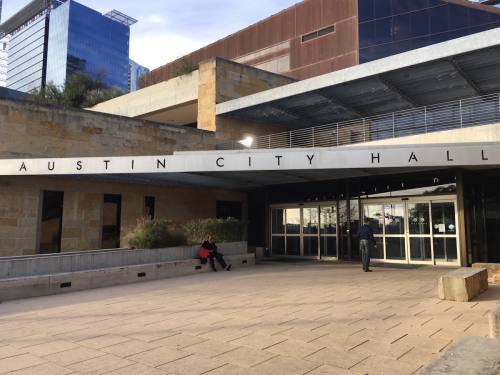 Austin residents could face, on average, a $532 total property tax hike in fiscal year 2017-18, according to the proposed city budget presented Aug. 2.
Austin residents could face, on average, a $532 total property tax hike in fiscal year 2017-18, according to the proposed city budget presented Aug. 2.
For the first time in Austin’s history, the city’s general fund—comprising operating expenses and revenue—is projected to eclipse $1 billion. The $1.033 billion proposed budget figure for expenditures is up from $975.6 million in FY 2016-17. The city’s total operating budget, which includes enterprise accounts such at the Austin-Bergstrom International Airport, Austin Energy, Austin Water and the Austin Convention Center, is set at $3.9 billion, up from $3.7 billion last year.
If the proposed tax rate of 44.51 cents per $100 of assessed home value is approved, it would be a tax rate increase from 44.18 cents last year, and the first tax rate increase since fiscal year 2011-12.
Citywide, median home values continue their steady five-year rise to $305,510—an increase from $278,741, or 9.6 percent. That is up 71.32 percent from 2012, when the median value stood at $178,327.
This has led to an average city property tax bill increase of 39.46 percent, from $897 in FY 2012-13 to a projected $1,251 in FY 2017-18. Council decided to forego an increase in the homestead exemption this year, which will remain at 8 percent.
When counting all taxing entities—the city of Austin, Austin ISD, Central Health, Austin Community College and Travis County—the tax bill for the owner of a median-priced home is projected to rise from $5,539 in FY 2016-17 to $6,071 in FY 2017-18—an increase of 9.6 percent. The largest portion of that increase is attributed to AISD, whose property tax rate remained steady at $1.192 per $100 of assessed home value, but the tax burden for a median-priced home increased from $3,025 to $3,344—an increase of 10.55 percent.
 On Aug. 9, Austin City Council set a maximum tax rate of 46.51 cents as a means of preserving the option for a tax swap with AISD, a complex tax strategy that will fund district programs through an increase in city taxes and a later decrease in school taxes. According to Mayor Steve Adler, the tax swap would ultimately end in a tax savings for taxpayers.
On Aug. 9, Austin City Council set a maximum tax rate of 46.51 cents as a means of preserving the option for a tax swap with AISD, a complex tax strategy that will fund district programs through an increase in city taxes and a later decrease in school taxes. According to Mayor Steve Adler, the tax swap would ultimately end in a tax savings for taxpayers.
The proposed maximum rate is 2 cents higher than the 44.51 cent rollback tax rate, or the maximum rate allowed without giving taxpayers the opportunity to petition for an election. It is a 13.6 percent increase over the effective tax rate—the tax rate that would ensure the city raises the same property tax revenue as the prior year.
Council passed the maximum tax rate 6-4, which gives the option for the increase. The proposal received strong pushback from several council members who have some constituents who live within other school districts and would not see the benefit. Public budget hearings begin Aug. 31, and council could adopt the budget between Sept. 11-13.





